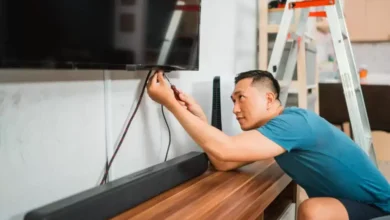Essential Resources for Seniors Aging at Home

As our population ages, more seniors are choosing to live independently in the comfort of their own homes. This growing trend brings attention to the need for resources and support systems that cater to the unique challenges of aging. From modifying homes for safety to leveraging technology for better care, there are numerous ways to ensure that seniors can age with dignity and independence. For those navigating the complexities of this transition, it’s crucial to stay informed about the available tools and services. In this article, we explore the essential resources for seniors aging at home.
Essential In-Home Safety Modifications for Aging Adults
Creating a safe home environment is essential for seniors choosing to age in place. Simple modifications like removing tripping hazards, adding grab bars in bathrooms, and improving lighting can greatly reduce fall risks. For those with mobility challenges, adjustments like ramps and wider doorways can make daily life more manageable, while emergency response systems offer added peace of mind.
Comfort and safety extend to key areas like bedrooms and kitchens. Adjustable beds, mattress rails, and placing kitchen items within easy reach help prevent strain or injury. It is also important to maintain a healthy indoor climate, especially during hot seasons. Regular maintenance through Newbury Park ac services ensures cooling systems stay reliable when seniors need them most.
Community Support and Local Resources for Independent Living
Community support is key to helping seniors live independently at home. Many neighborhoods provide senior-friendly services like meal deliveries, home health aides, and transportation options. These not only assist with daily needs but also help reduce isolation through meaningful social interaction.
Resources such as local senior centers offer activities like exercise classes and workshops, fostering connection and well-being. Tools like Lyft for seniors make it easier to attend appointments or social events, promoting independence without needing to rely solely on family.
Leveraging Technology for Enhanced Home Care for Seniors
Technological advancements are transforming in-home senior care by offering tools that promote safety, independence, and social connection. Personal emergency response systems (PERS) allow immediate access to help with the push of a button, especially useful during falls or health emergencies.
Smart home features such as automated lighting, heating, and security help seniors manage daily tasks with ease. Smart medication dispensers support adherence to prescription schedules. Video chat platforms, social media, and online games provide entertainment while helping combat isolation. Telehealth services enable medical consultations and monitoring from home, making healthcare more accessible for seniors with mobility challenges or those living in remote areas.
Financial Planning Tools for Seniors to Manage Aging at Home

Financial planning plays a vital role in helping seniors age at home comfortably. It’s important to budget for home care, modifications, and daily expenses using tools and advice tailored for older adults. Long-term care insurance can help cover services like home health aides, which are often excluded from standard health insurance. Consulting a financial planner who specializes in senior care can make navigating insurance options easier.
Government programs such as Medicare and Medicaid may provide financial support for certain in-home services, depending on eligibility. Some seniors consider reverse mortgages to tap into home equity for living costs, though this choice requires thoughtful evaluation due to its lasting impact on finances and estate planning.
Health Management Strategies for Aging at Home Successfully
Health management is a key part of aging at home, involving regular medical check-ups and preventive screenings to manage ongoing conditions and detect new ones early. Nutrition is essential, with access to healthy meals or grocery assistance helping seniors maintain a balanced diet tailored to their health needs.
Physical activity, suited to each person’s abilities, supports strength, balance, and flexibility, reducing the risk of falls. Activities might include neighborhood walks or senior-focused yoga classes. Mental well-being also plays a vital role, supported by brain-stimulating hobbies like reading and puzzles, as well as ongoing social interaction, which enhances emotional health and contributes to a fulfilling daily life.
Overall, aging at home requires careful consideration of safety, health, and community support. With the right resources and planning, seniors can enjoy the comfort and familiarity of their own home while maintaining their independence and health. By taking advantage of these resources and tools, aging adults can successfully navigate the challenges of growing older with confidence and security.




